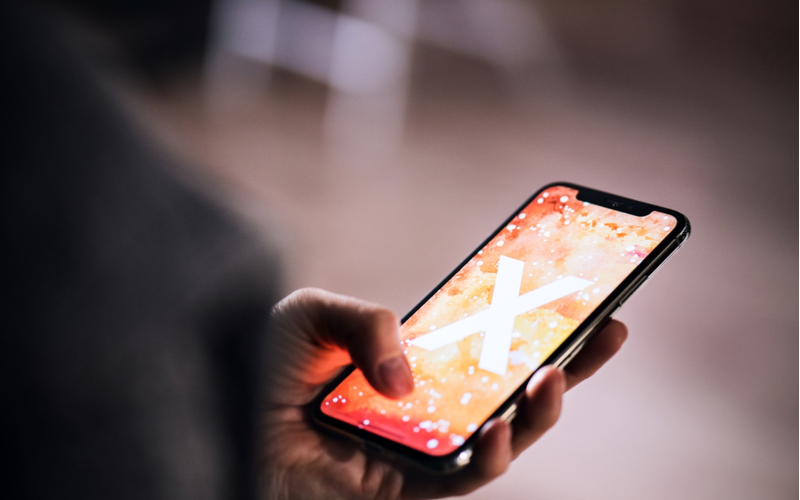My Phone Is Amazing; Please Don’t Call
Robots placed more than a billion spam calls last month. You probably received a few or even hundreds. It’s driving people nuts, understandably. As usual, legislators and regulators are pushing bans and penalties. Also, as usual, it will be the private sector that will solve the problem, just as it did with email spam years ago.
The call spam problem has accelerated a trend that was already developing. People are ever less willing to answer calls at all. An ethos is on its way toward entrenchment: text before you call, and don’t call at all if the issue can be handled via text.
Here we have a notable irony. The phone was one of the great inventions in human history. Humanity languished for the whole of history without the ability to communicate over distances in real time, except via fire and smoke. Then came the glorious telegraph (in 1844) with its language of dots and dashes. Two and a half decades later, the promise of hearing the human voice was a reality.
Now you can make voice calls on your regular phone plus video calls too, and this is true on the Facebook app, WhatsApp, Telegram, Signal, Slack, Snapchat, Google Plus, Skype, and probably one hundred other applications. The sound is astonishingly clear. These services are all free. Not only that: companies are begging you to use these services.
The technology seems so perfect as to be unimprovable. Such a short period of time. Early in my lifetime, there was no such thing as a phone in your car or pocket. I remember as a kid fighting over the phone nailed to a wall in my house, with a springy cord that stretched 20 feet. To be holding the receiver was the most envied activity in the household. The government itself owned the phone, installed it, and serviced it.
Hardly anyone today remembers long distance charges. I can recall a time when you would be in some other city and use the chance to call Aunt Julia just because it didn’t cost anything. Now you can call all over the world, person to person, at no charge.
Once the government monopoly was ended, innovation was unleashed (regulations had delayed cellphones by perhaps decades). The phones eventually left the household and came to our pockets. Then everyone in the world had magic devices that allowed an instant connection to everyone else in the world. The first cell phones were a dream come true. Then came the iPhone, just 12 years ago. Now they are ubiquitous.
It’s a utopia of phone communication.
And wouldn’t you know it, at this exact moment in history, people have turned against it.
I’ve suspected for a while that no one under the age of 30 wants phone calls. Ever. Voice mails are considered to be so passé that they elicit eye rolls. “Let it go to voicemail” really means: “I’ll pretend this isn’t happening.” Now our phone transcribed voicemails so that we don’t have to listen at all. Progress now means turning the voice back into text so that we can read and not speak.
Even I’ve felt it. The phone rings, and I see the name and think: this had better be life and death or else. Parents and loved ones can call, but no one else.
It took the magnificent and gradual evolution of technology working with markets, brought along through the efforts of countless millions and billions of users, over the course of the century and a half between the first phone call and the latest audio program that no one uses, to arrive at this new utopia.
Then humanity just walks away from it.
Surveys confirm that no one under 30 years of age likes to talk on the phone.
Why? It takes more time than texting. That much is obvious. But there’s more to it than that. When you are on the phone with a person, both people have to want to do the same thing at the same time. You can’t choose. No multitasking. There has to be what economists call a “double coincidence of wants.”
Talking on the phone, then, is like barter: good exchanges for good, directly and simultaneously. Text or emailing or chatting, in contrast, holds out the possibility that the other person can answer at his or own convenience. It is the difference between direct and indirect exchange.
Calling a person isn’t direct coercion, but it can feel like it. “Stop whatever you are doing right now — no matter how important it is — and immediately turn your attention to me!”
For the generation that grew up with the Internet and texting, with its endlessly flexible options on reading and answering, indirect communication seems more polite and humane.
Thus does the cycle end. After all these years of perfecting the phone, the whole of humanity decides to revert to a technology that has more in common with the dots and dashes of Morse Code and a delivery system that avoids real-time communication as much as a telegram from Western Union.
The lesson here: never think you can outwit the crowd-sourced wisdom of the masses of humanity. You think something is wonderful and desired by all, and you are shocked to discover that, even after a century and a half of improvement and being wildly popular the whole time, it is not desired anymore, unless absolutely necessary. We thought we wanted personalized phones and free calling; what we really wanted was a tiny computer in our pockets that connects the whole world.
Yes, spam calls are a problem. Never answering the phone is one workaround. But even before this nonsense, calling was going away.
Maybe there is something in us that needs to believe that if something is not quite right, that something can be improved, it deserves all our effort of minds and imaginations to help it become what it should be. But when a technology becomes flawless and universal, the contrarian in all of us rises up and says: nah, never wanted that anyway.
It’s possible that if we ever actually get flying cars, we’ll later decide they are tacky and pointless.
What we really want is not someone else’s idea of endless improvement but rather choice: the right technology for the right occasion. No one is smart enough to know much less game what those choices will turn out to be.













